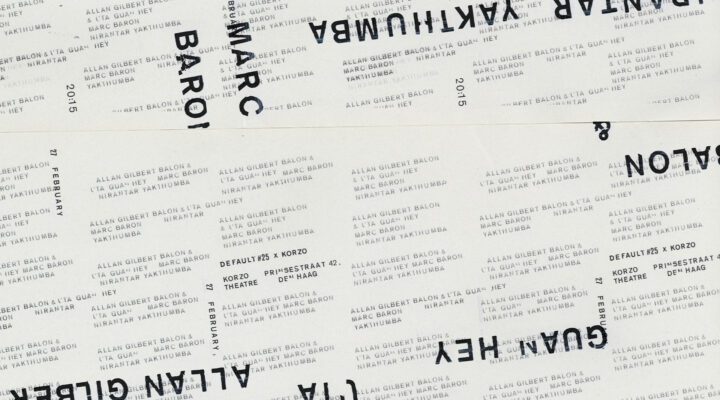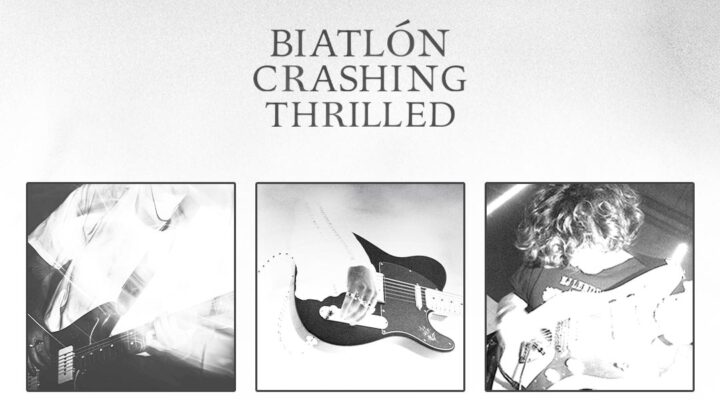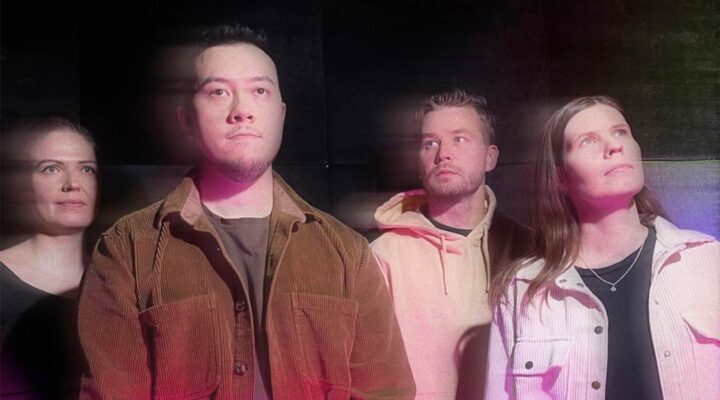An interview with Ravenna Hunt-Hendrix of Liturgy
Interview by Sydney van Nieuwaal
Photos and diagrams by Ravenna Hunt-Hendrix
Liturgy is a project by Ravenna Hunt-Hendrix, combining transcendental black metal, classical music and sacred ritual – as aptly displayed on Liturgy’s latest album Origin of the Alimonies. But really, it’s so much more than those words report. For Issue 2 of Sprout, I had a time-zone bending conversation with Ravenna about the theme of ‘sustain’, her philosophy system and the stride towards Heaven. After your read, get more info and context on Ravenna philosophy via her YouTube or podcast series, here and here.
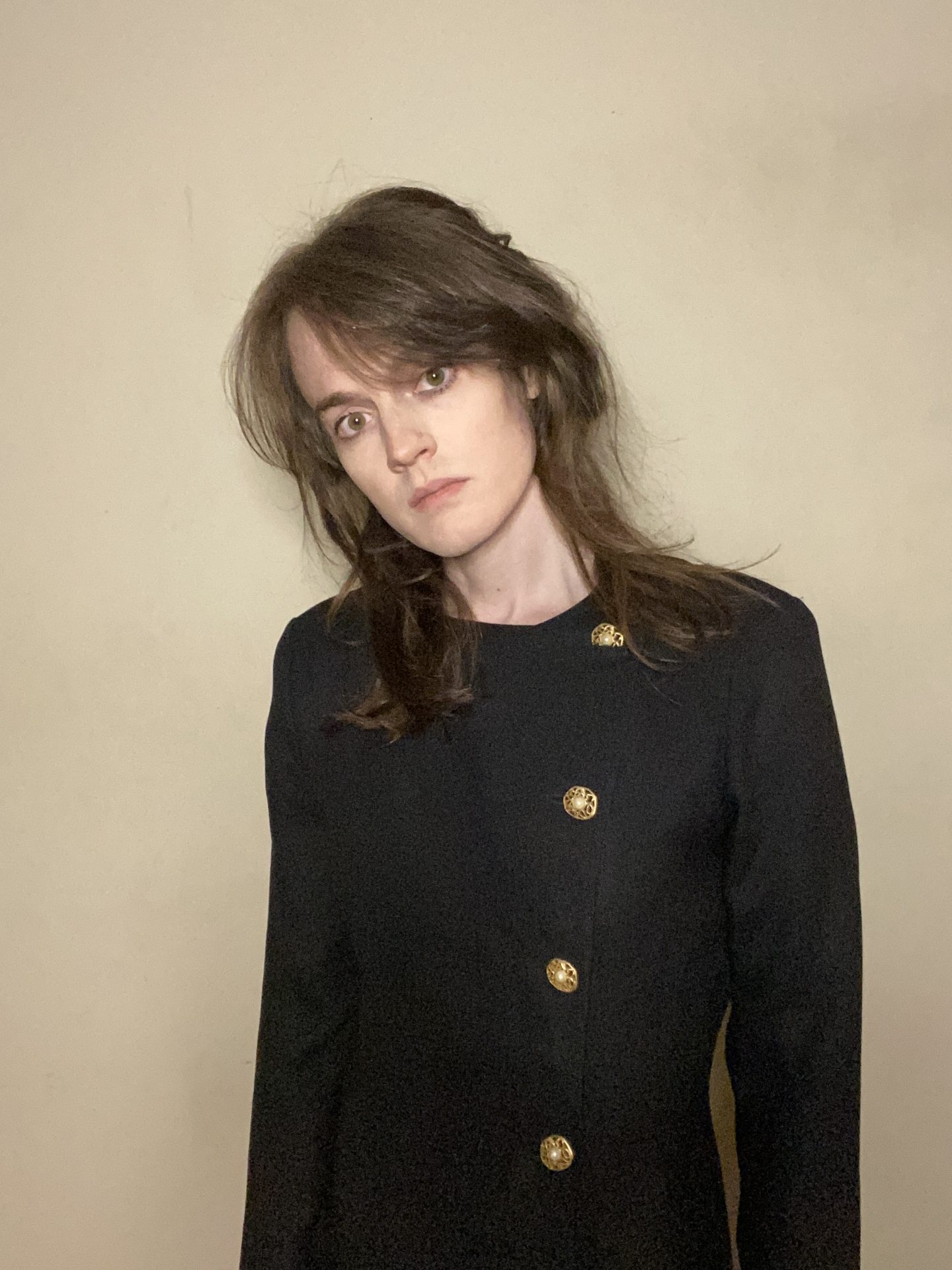
Hi, thanks for speaking with us.
Thanks for the invitation!
This issue of Sprout is themed ‘sustain’. Its definition resonates to me as a double edged sword: on one hand it may refer to strengthening or supporting something, while on the other it might refer to enduring, undergoing or suffering. What does ‘sustain’ invoke to you?
I agree with you that sustain seems to have those two almost opposed meanings. One being a sort of nourishing form of sustenance. It kind of makes me think of God. But yeah, sustain is kind of a crucible as well. It’s kind of painful to sustain something.
In what way does it refer to God to you?
Well, as a source of comfort that sustains you while you’re on the crucible of your quest as a human. I guess they’re related actually. It’s two sides of the same coin.
In another interview you said that when one loves God, one gains more agency or freedom. Why is that?
Because I think that if you desire God’s love and take satisfaction in it, then your desire is more autonomous – as you don’t need as much satisfaction from things in the world. And then, as a result, you don’t need to compromise as much. I think it’s better to take comfort in God and then give love to your friends, instead of seeking love from your friends.
How do you make sure your love with God is fueled and kept? How do you sustain it?
I think it requires ritual. You’ll have to do little things that will open your mind to God’s grace. Just yesterday I was reading this book that was unpacking Saint Thomas Aquinas’ theory of grace. Saint Thomas Aquinas is a medieval philosopher and theologian. There’s an idea in Christianity that when your intellect, imagination and will are vibrating together in a special way, they become organs of God. When that happens, God is directing the things that you do. Then you just create.
How does this tie back to the ritual?
Because it requires good habits, I think. You can build a cylindrical structure of symbols that you can inhabit. A prism that God’s light can enter through.
Can such a prism be ‘caging’?
Yes.
How do you know you’re in the right prism?
I think it’s important to be allowed to revise the prism. That’s the problem with organized religion: it’s a prism that works for a while, in a certain context, and then becomes oppressive.
So, how do you revise your prisms?
I think there are a number of ways. One way is critical thought. The trajectory of secular modernism is this critical enterprise that revises prisms by thinking and discovering contradictions. Another one is listening to your soul. The aesthetic mode of revising is simply making something and then discovering the ways in which it’s inadequate to the inspiration that gave birth to it, and then trying to make something again.
Would another means of revision be conversating with someone else? Asking others to look at your prism?
Definitely. I think that’s necessary in both of those cases. I mean, you’re never alone. Nothing really happens unless you’re sharing what you do with people. It’s almost like the scientific method. You need to check your work.
Peer-reviews.
A peer-review, yes. But it can be an emotional peer-review. Sometimes, the revision comes in the form of discovering an unconscious force that was driving you. One you didn’t know about or maybe couldn’t accept at the time. In other cases, the revising comes because of a new configuration that you happen to arrive at. One you never would’ve thought of. And there, definitely other people are involved in.
In implementing next steps in your growth?
Yes, but a next step that isn’t in the direction you were thinking. One that takes you somewhere you never intended.
A pull on the steering wheel.
Yeah, yeah. Take the electric guitar for example: distortion was never intended when they invented amplifiers. The guitar was supposed to have this sort of glassy sound. And then, by accident, amplifiers would distort – which was a problem. People became interested in how that sounded and an entire new form of music arose because of that. Things like that. Happy accidents.
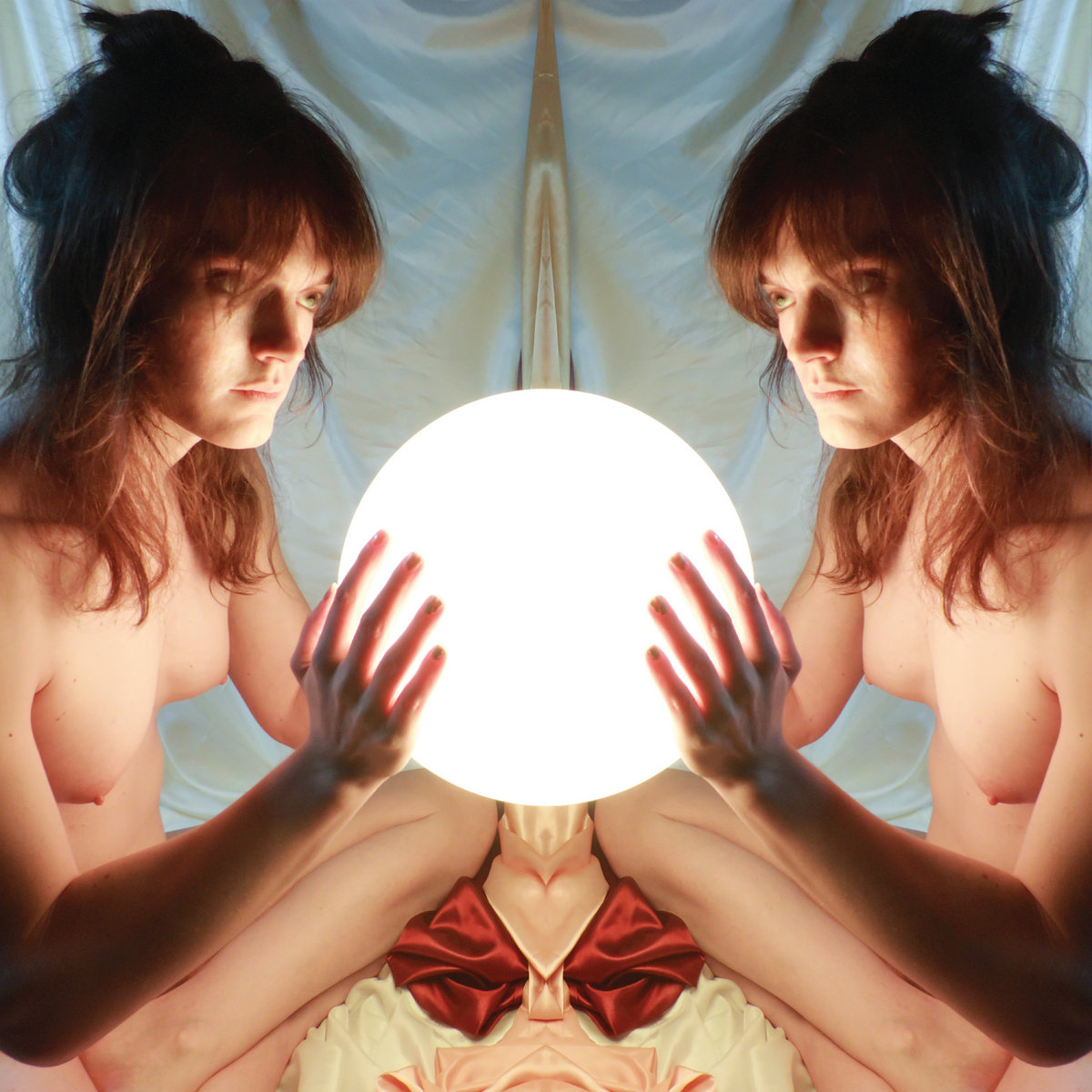
You’ve been writing about the burst beat in comparison to the blast beat – which is the more, I guess, commonly associated drum style to black metal music. You spoke of the burst beat as being able to accelerate, decelerate and to cross certain thresholds within that process. When it crosses such a threshold, the burst beat changes its form rigidly. I think you use the analogy of a horse walking, trotting and then, galloping, or of water changing from solid to liquid to gas under certain temperatures. Snapping from one form into another – what’s there to explore in that process for you?
I originally formulated the idea of the burst beat at a time when I was interested in materialist alchemy, kind of-
-materialist what, sorry?
Materialist alchemy. I’m making up that term. Like… Occult materialist ethics involving the idea that a more intense way of living, one that’s more free and just, is to make contact with these thresholds that are everywhere. The reason that it’s good to make contact with them is because your fixed ideas, about how things need to be, dissolve. The idea comes from ‘Complex Systems Theory’, in its more scientific formulation. For example when you mention a liquid’s boiling points. In theory, that phenomenon is universal. It counts for the soul and for social dynamics as well. But, unlike in physical and biological processes, where it doesn’t matter so much if a threshold gets crossed, in a social or emotional context it corresponds to something like an epiphany. One where you look around and the world is new. You see a new set of possibilities that you didn’t see before. It relativizes the experience you were having. I mean, I think that ideally it should happen as often as possible. They are rare, but the idea is to make music that triggers it. Like, when you go to a show and that causes an experience of epiphany. I don’t mean to be grandiose about it or something, but that’s the idea.
Alright.
You can imagine that world historical singularities are organized in the same way: the different modes of production correspond to different eras in history. It’s kind of like they have different temperatures, you know. You cross a boiling point from feudalism into mercantile capitalism and from capitalism into the information age or information capitalism. Right now we’re in this situation where everything is so chaotic and no one really knows how to set a goal for civilization. No one knows what to do, but the question is in the air.
Do you think that question was always in the air?
I think the question of what to do is sort of always in the air, for any person. I think the more civilization has a conscious sense of its collective humanity, and the more time speeds up, the more urgent the question becomes. Things haven’t been this strange before. Things don’t usually change this quickly. The fabric of reality is being ripped, and we don’t really know what’s going to come out of it. It’s kind of like the double edged sword of sustain you were talking about. There’s this sense that we have all this power. We could almost do anything, collectively and scientifically. But our sense of agency is almost nothing. It seems that people can’t get together and choose to direct things because other mechanistic forces are too powerful.
It’s used as a political argument as well. People pull their hands off something and point fingers towards others, as they feel their individual agency doesn’t make an effect at all.
Yeah, I think that’s a very unfortunate way of spinning those ideas.
Of course.
I mean, that’s kind of where God comes back in. Even if it seems impossible to improve the world… if there’s one way to do it, it would involve faith. Because God is what does impossible things. In more archaic versions of Christianity that’s what faith, hope and love are about. The divine virtues. They are about allowing grace to enter, which can achieve impossible things.
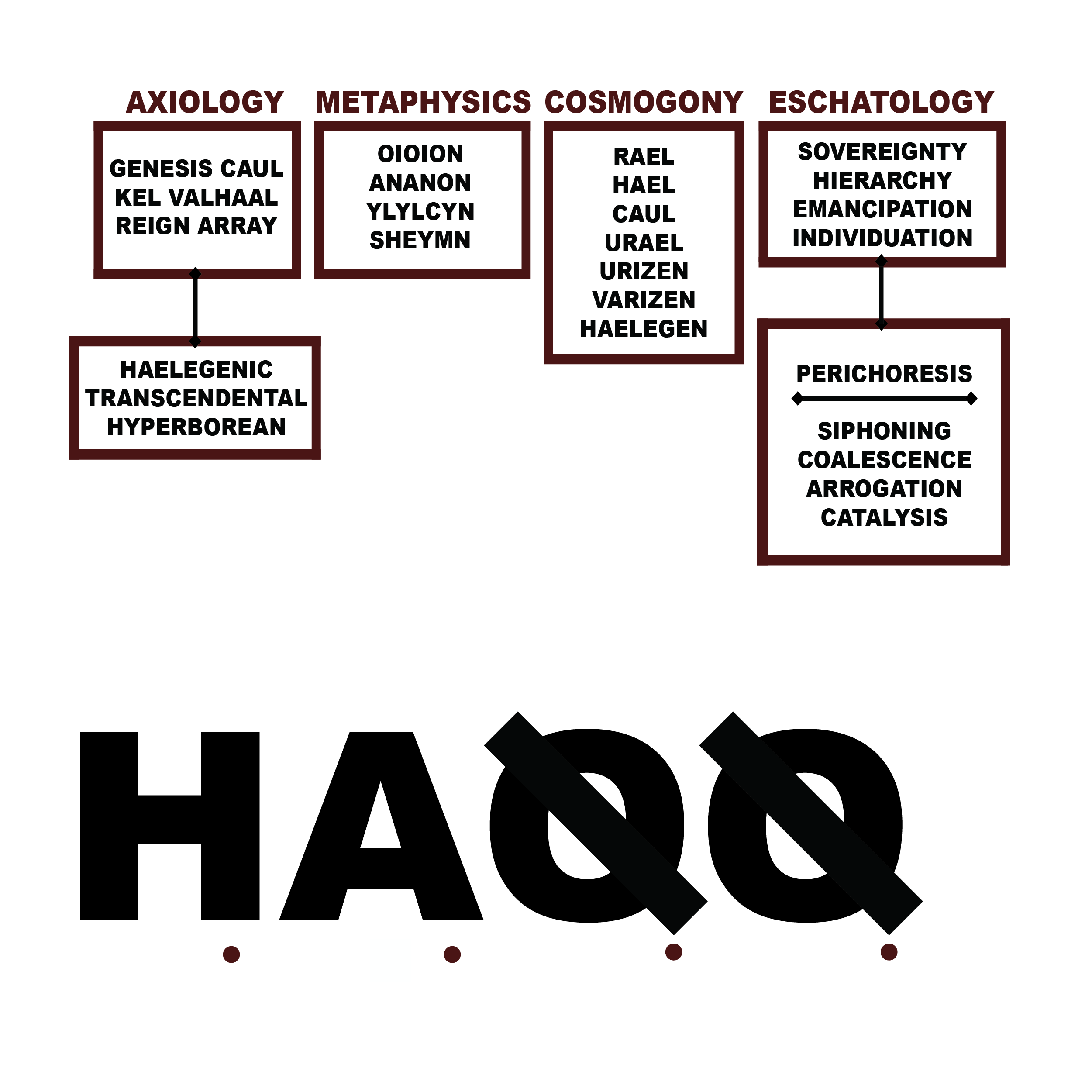
While reading about your idea of the burst beat, I stumbled upon accelerationism by Deleuze, Land and Fischer. The idea of drastically feeding a system to let it boil over and go onto the next phase. I was wondering if there’s something you’re interested in to explore in-between the cracks of a threshold, if that makes sense? What happens if you stretch out a particular moment of epiphany and focus on everything that’s happening right there? I think there’s a lot of beauty to be found in there.
Yeah, definitely. I agree completely. I would say that’s what the burst beat is about. It’s not about either side of the singularity. It’s about sustaining that sense of betweenness. And, sort of riding on that threshold. Because that’s what’s divine, you know. Either side of the wall, those are profane worlds. The space in between is divine.
I see!
I think also part of why I’m interested in doing music, philosophy and drama at the same time, is because I think that to stay in that space requires coordination between different aspects of the soul. I think the accelerationist idea of just getting excited about pushing things forward to a new unforseen realm is kind of dumb. I mean, it’s not very sensitive. It’s not loving. It’s clever, but that’s about it. The premise is strong, but I think that it’s more interesting as a challenge than as a program to take up.
In another interview you said that the light of God can radiate to the world through the portals of art, emancipatory politics and science if they’re combined correctly, and if they are in the right connection to God’s power. How does this connection work? How does God find its way within those realms of the material world?
Well, in part because it is a mirror of the Holy Trinity itself. It’s a vector that has the creation of heaven as its horizon. So, there’s SIPHONING, COALESCENCE, ARROGATION and CATALYSIS as the four operations of perichoresis. Those are the rules that I follow as I’m working on new music, video’s or when I’m planning things out. CATALYSIS is the eschatological aspect of perichoresis. That’s the one that is conceiving, envisioning and imagining an era where the arts are not confined to the aesthetic sphere. There where they’re not fields of activity, consumption, appreciation, canonization and however else art is used. You can imagine drama, music and philosophy becoming the organizing principles of society. This is obviously incredibly speculative, but that would be imagining what heaven will be like. That part of my philosophy system is the eschatology, which is an attempt to paint a picture of heaven with the idea that if you imagine something vividly and powerful enough, that it creates a center of gravity, which creates a sort of propulsion towards that vision. So, to create a sort of multimedia practice that is an image of heaven that’s powerful, then maybe you could pull society towards heaven, or maybe you could just, you know, cross the threshold and trigger heaven all at once. But that’s pretty unlikely, I guess.
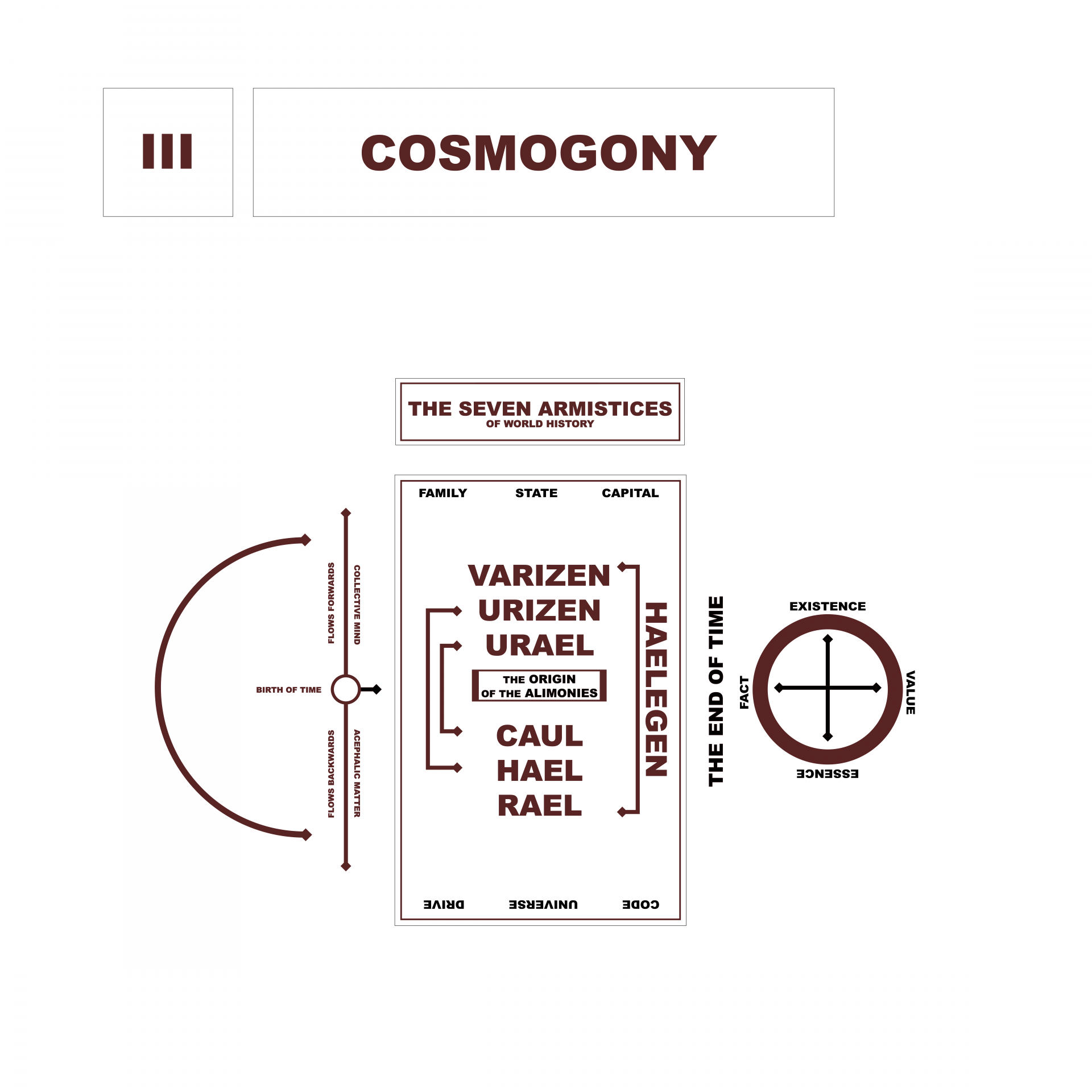
So, heaven will be when capital is overthrown as the main demeanor and putting things as music, philosophy, drama on that spot?
Yes, it would involve overthrowing capital. A post-capitalist heaven. Both early Marx and Fourier talked about the idea that in utopia the ruling principle would be the development of human talent. So, people don’t work for wages based on what is needed. They’re supposed to work very hard and suffer, but the work is for them to discover what they’re best at innately, to develop that and to share it. But, no suffering goes unredeemed. The problem with the current world is that most suffering is not redeemed. In capitalism exchange value runs the world, right? So, instead of exchange value, it’s innate human talent as value that’s running the world. My vision of heaven is a combination of that idea with more sublime visions of heaven from medieval theology. Especially the eschatology of Mullah Sadra, a theologian from Islam, who has this vision of the imaginal bodies populating heaven.
Music, drama and philosophy would be the fields to develop your talent in… However, I know a lot of people who don’t have an interest in developing their talents within either of those fields.
Well, they would be much expanded. There’s a fourth one as well. Music, drama, philosophy and architecture, corresponding to goodness, beauty, truth and justice. Those are the transcendental forms that can infinitely expand, unlike all other forms in the world. It seems like they are these infinite horizons. One pertains to the soul and pure creation – corresponding to music. One is more discursive and pertains to understanding and dividing things up – corresponding to philosophy. One pertains to breaking through a finite boundary in a more insurrectionary way – corresponding to drama. And then the fourth pertains to politics, which is like establishing a new order of the first three – corresponding to justice. Those are the four cardinals in Transcendental Qabala, which are called Ascesis, Catharsis, Fervor and Majesty. But anyway, to answer your question, what we think of as music is just a taste of what music will be in heaven, haha. So all those people who don’t like playing music in our world… What they do will actually be music.
Ah, I get it! To link the theme back rather rigidly: how do you sustain such a heavenly state of the world, once reached?
Oh, good question. I have no idea, but I just imagine it sustaining itself. Well, I was thinking about this recently, actually. So, HAELEGEN is heaven. This is like speculation on top of speculation; but there must be another age after HAELEGEN where there’s nothing but music. What HAELEGEN would be doing, is working towards the next age, where reality is pure music. So, in other words, it’s sustained by a goal. I like to imagine just pure music. Just pure music enjoying itself, composing itself, improvising. It’s what heaven would be like from heaven’s perspective.
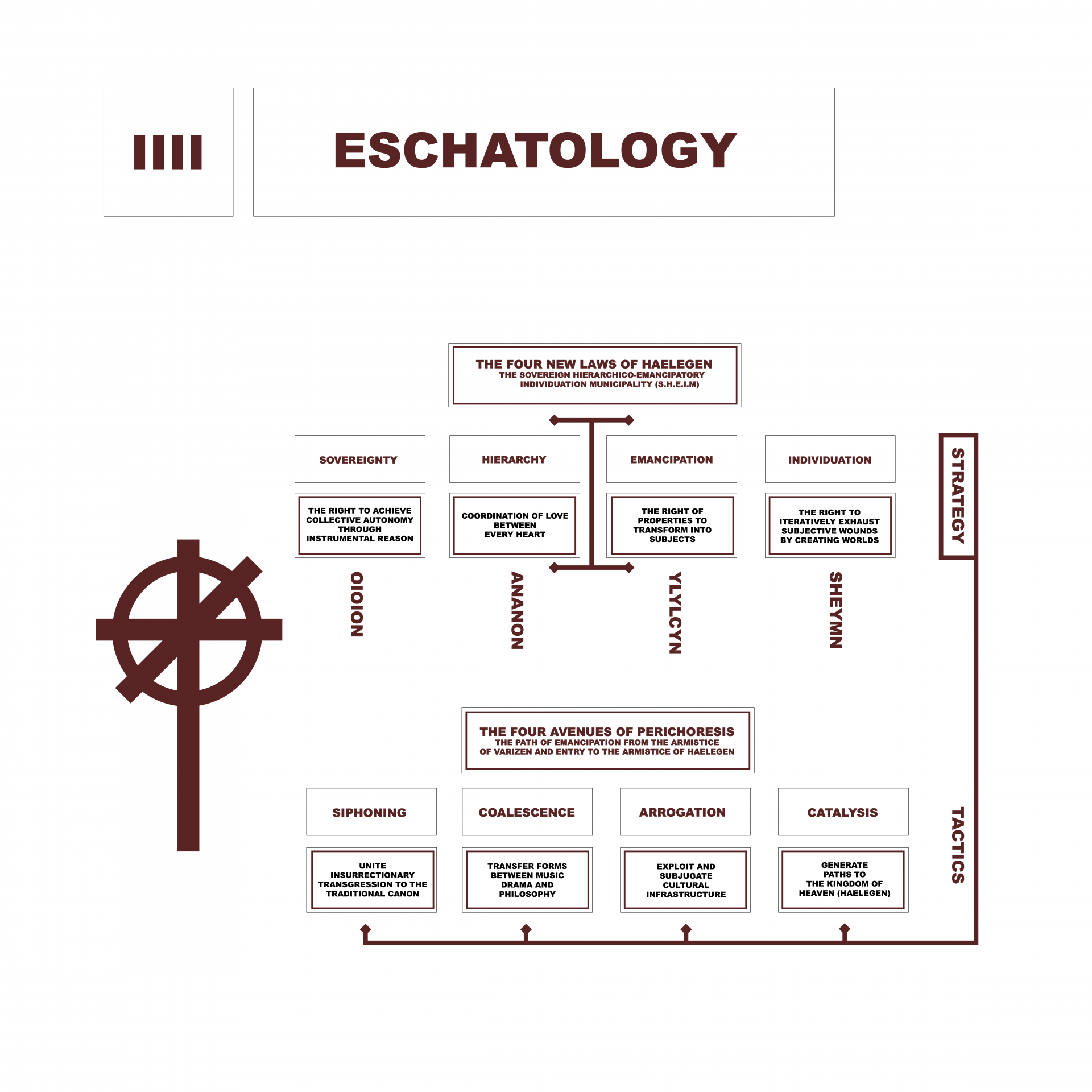
Origin of Alimonies ends with ‘The Armistice’. An armistice between whom?
It’s an armistice between the two characters: OIOION and SIHEYMN. The idea is that OIOION is a principle of surplus and that SIHEYMN is a void that OIOION imagines. A void that she tries to fill with her surplus or shine her light into – these are all metaphors. But then SIHEYMN shatters and they’re both traumatized, so they both secrete these barriers to protect one another from each other. That’s the armistice. It’s like a truce. But, the two barriers, ANANON and YLYLYCN, form a prism structure. Those layers protect OIOION and SIHEYMN from destroying one another again, but they can also contain the light, evolve and become more differentiated and complex, so gradually more and more light from OIOION can reach SIHEYMN. =
Okay.
There are actually seven armistices. That’s the cosmogonical aspect of my philosophy system. The original armistice is between OIOION and SIHEYMN, but there are seven ages of world history, which are what you might consider ‘modes of production’ in Marxist materialist philosophy or eons in occultism. That is where those thresholds are being crossed. An era where there’s a certain amount of productivity, technological development and interconnectedness in the world. There’s seven era’s like that, and HAELEGEN is the last one.
And everything in between?
We’re in the sixth age right now: the armistice of VARIZEN. The Industrial Age was the armistice of URIZEN. That’s the age that William Blake designated while he was writing. He thought that the next age would be heaven, but he couldn’t fathom that consumer culture would arise and prevent free love from creating and recapturing the forces of the human spirit within a structure of domination. So, it turns out that there is one more chapter.
So, consumerism has to transform and must make way for an age of love, as the catalyst for heaven to come?
Well, rather individual ability to create and manifest something unique and to pursue it every bit like that. I think heaven will be populated by individuals who are manifesting their talents.
Do those individuals can freely share ideas, talents and skills with one another?
I think that’s the whole point. SOVEREIGNTY, HIERARCHY, EMANCIPATION and INDIVIDUATION are the four laws and rights in heaven. As we’re aware of our collective oneness in heaven, laws and rights are the same, kind of. So, SOVEREIGNTY is the idea that the whole structure is headed towards pure music, where more and more of what separates us is discarded. HIERARCHY is a social arrangement where people are able to productively share much more effectively then usual. It only happens in the best of cases here. You know, when you meet someone who has just the right palette for you to learn something. EMANCIPATION is the expansion of rights. That’s sort of like the intersectional aspect, because we don’t we don’t know what new rights will emerge. Transgender civil rights weren’t part of the mainstream conversation until the past decade. Things like that are an important part of heaven. There will be more and more forms of emancipation where collective identities will be allowed to crystallize. INDIVIDUATION is the aspect where one has a right, fundamentally, to learn, grow and pursue what talents one has, and then to be sharing it and getting feedback. Those are four fundamental things. So much could change in terms of what society is like and what it means to be human, but those would remain in heaven.
When linking the theme to ‘sustainability’, I think of our environmental crises. When thinking of this notion of heaven I can’t help but wonder where this is going to happen?
It’s a hard question. I think it would have to be in a very technologically advanced society that has solved the problem of sustainable energy. I certainly don’t have a solution for climate change, haha, but it does presuppose a technologically advanced society. This isn’t a messianic vision of heaven. It’s not something that comes out of nowhere. It’s a political vision. It’s a vision of communism. I know that some visions of communism are not high-tech visions, and they wouldn’t want the world to be high-tech, but for this one, you would need a lot of technology, I guess. But, it’s above my abilities to say anything about how it could be achieved.
Lastly, you’ve been very invested in your belief system and incorporating it in your art. How do you sustain this path of spiritual growth?
Well, just doing it is one way of sustaining it. I mean, in addition to making the work and sharing it, you know, it is sort of a religion… It’s like a religion in progress or like an art project of constructing a religion. Like, I pray to serve God’s will a lot and I make choices that go along with that. It kind of sustains itself from there, I guess. Does that answer your question?
I think it does! I would say it’s belief as a short answer.
Or hope, I guess.
This interview comes from Sprout Issue 2 – Sustain. Sprout is Subbacultcha’s monthly zine, exploring a theme every instalment. Each issue gives home to an illustration, an opinion piece, an interview and a story of fiction curated by San Serriffe. More info here.

